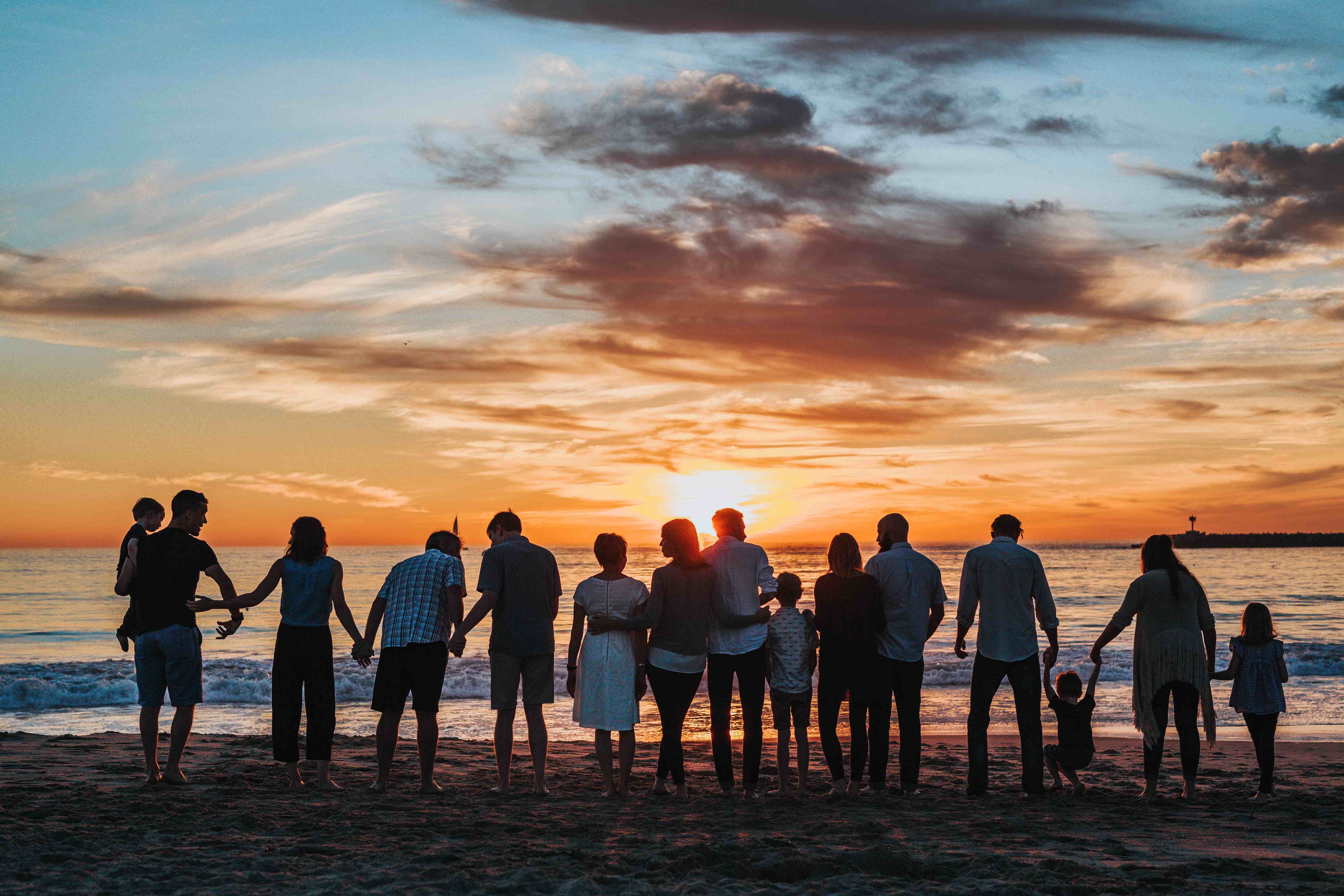 Evolution & Behaviour
Evolution & Behaviour
Let’s live together: sharing with others may help us live longer
Receiving help from others is an essential aspect of our life. In childhood but also in old age, we need our families, related kin or broader society to help meet our needs. Our research reveals that we can expect to live longer in societies where people share resources more generously.

No one is an island – sharing with others is a key social characteristic of ours, which has made humans successful throughout evolution. Receiving help from others makes it easier to provide our needs and survive during vulnerable stages of our lives – it is especially true for childhood when parents or broader family provide us with various resources (goods, services, support, etc.) that contribute to our future and daily life success.
In addition to this classic familial sharing with the young, modern societies increasingly share resources with the elderly. Public programs for health or pensions support older people in most modern welfare countries. Moreover, young people tend to share more resources with their grandparents. But how's such progress in resource-sharing with others reshaping our life?
This encouraged us to address a more concrete question: does sharing across generations affect how long we live? Considering all monetary public and private sharing between generations, we developed a new comprehensive approach to understand how "sharing-generosity" in a society affects people's life expectancy (the average length of life). This approach uses a dataset on resource-sharing within families and via public channels from the National Transfer Accounts Network. This international research network investigates how average individuals from over 90 countries consume, generate income, share resources, and save at each age across the life course. Researchers have collected the data mainly from country-dependent surveys that cover various items: public and private expenses for education, health care, housing, food, clothing, security, leisure, and pensions. We analyzed these rich datasets to estimate the sharing-generosity for 34 countries from all continents and compare it to the life expectancy in each country.
We thus obtained profiles of how an average individual in each country covers their basic and higher needs with their own income and savings or with the support received from others. These profiles revealed that resources are shared differently depending on countries – certain countries share resources mostly within families, while other countries mainly redistribute resources publicly. In all the studied countries, children and adolescents receive public and private support mainly from the working ages. So do the elderly in all countries except low-income countries.
Simply comparing these profiles was not sufficient to estimate sharing-generosity in each country, because covering one's needs is more costly in developed countries than in less developed countries, for example. To unbiasedly assess generosity in society, we revealed the relationship of the overall support that different age groups receive in each country with the lifetime income of the average individual. This generosity indicator allowed us to objectively compare sharing-generosity in different countries. For instance, we found that an average individual in Sweden publicly shares resources (education, health care, pensions, public security, food etc.) that are worth about 55% of their lifetime income, while one in India shares only around 27%.
Lastly, we tested if the sharing-generosity is directly associated with life expectancy across countries. We found a strong linear relationship between life expectancy and a society's generosity toward sharing. Our results suggest that a 10% increase in sharing-generosity extends the average length of life by around 3%. So, being more generous likely helps us live longer!
Collectively, we concluded that sharing with others is indeed strongly related to life expectancy in a society regardless of its political frameworks, traditions or cultural contexts. These findings suggest that supporting others has been critical for our evolutionary success and our daily lives in today's societies. Our results may also reflect a society's cohesion and the willingness to help people in need, with perhaps our joy, which goes beyond the mere supply of resources. Exploring these important social aspects of ours is an exciting challenge for future research.
Original Article:
Vogt, T., Kluge, F. & Lee, R. Erratum: Intergenerational resource sharing and mortality in a global perspective. Proc. Natl. Acad. Sci. U. S. A. 117, 26533 (2020).
Edited by:
Dr. Akira Ohkubo , Associate Editor
We thought you might like
Unravelling the Secrets of Pine Roots: A Tale of Nutrition and Adaptation
Oct 20, 2023 in Plant Biology | 3.5 min read by Rafael Cañas , Francisco OrtigosaNon-cuttable material inspired by seashells
Jul 21, 2021 in Maths, Physics & Chemistry | 3.5 min read by Stefan Szyniszewski , Miranda AndersonThe body-language of the elephant trunk
Aug 23, 2021 in Evolution & Behaviour | 3.5 min read by Paule Dagenais , Michel C. MilinkovitchAntarctica Has Got the Chilly Chilly Shakes
Dec 14, 2018 in Earth & Space | 4 min read by Amanda LoughMore from Evolution & Behaviour
Cicada emergence alters forest food webs
Jan 31, 2025 in Evolution & Behaviour | 3.5 min read by Martha Weiss , John LillSize does not matter: direct estimations of mutation rates in baleen whales
Jan 29, 2025 in Evolution & Behaviour | 4 min read by Marcos Suárez-MenéndezThe Claws and the Spear: New Evidence of Neanderthal-Cave Lion Interactions
Jan 22, 2025 in Evolution & Behaviour | 3.5 min read by Gabriele RussoA deep-sea spa: the key to the pearl octopus’ success
Jan 20, 2025 in Evolution & Behaviour | 3.5 min read by Jim BarryFeisty fish and birds with attitude: Why does evolution not lead to identical individuals?
Aug 31, 2024 in Evolution & Behaviour | 3 min read by Lukas Eigentler , Klaus Reinhold , David KikuchiEditor's picks
Trending now
Popular topics


